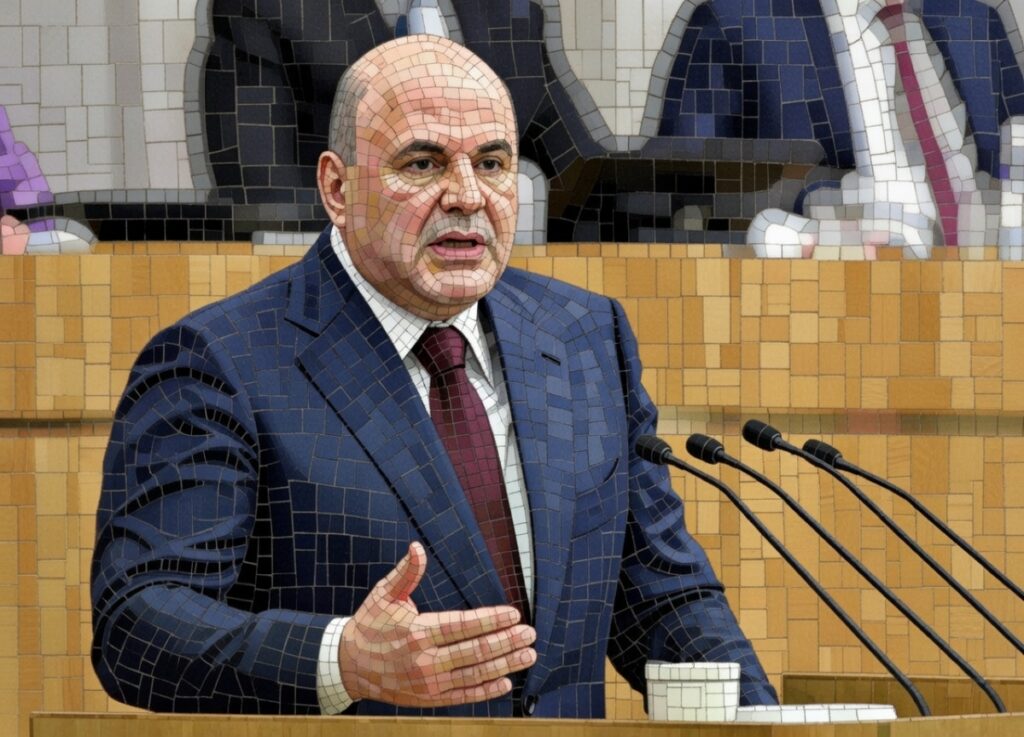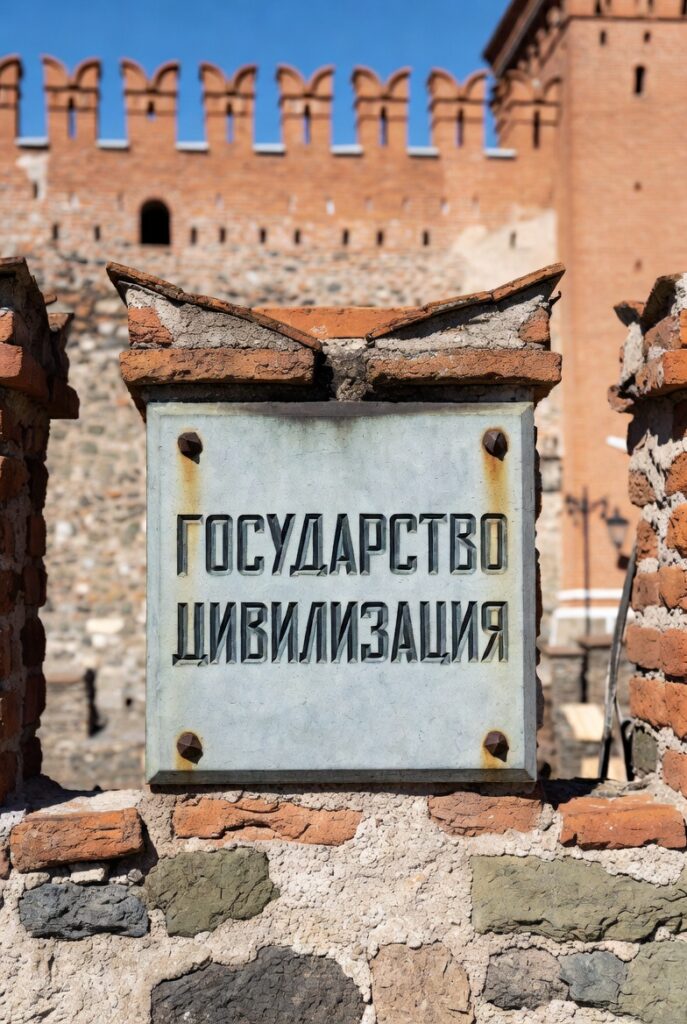Prosecutor General Igor Krasnov has applied for the position of Chief Justice of the Supreme Court, which became vacant following the death of Irina Podnosova, a classmate of Vladimir Putin, who would have turned 72 in 2025. Podnosova held the post for only 15 months. Her predecessor, Vyacheslav Lebedev, who died at 80, had led Russia’s Supreme Court since its establishment in 1991. At 50, Igor Krasnov stands out in this context: for Russia’s power vertical, he is relatively young. This appointment appears to be a promotion for the Prosecutor General, considered one of Vladimir Putin’s favorites, who previously abolished age restrictions for this post.
Before Krasnov’s application, there was speculation that 71-year-old Alexander Bastrykin, head of the Investigative Committee (IC), might be appointed to lead the Supreme Court. Against the backdrop of personnel stagnation, choosing Krasnov signals an intent to motivate the bureaucracy and security apparatus, demonstrating that career prospects are open to the young and ambitious. Additionally, media reports hinted at broader reshuffles: Bastrykin was supposedly set to leave his post to become the presidential envoy to the Northwestern Federal District, the current envoy was to take the Prosecutor General’s chair, and Justice Minister Konstantin Chuychenko was to head the Investigative Committee. These rumors created the impression that Russia’s personnel stagnation was ending, and Putin was moving away from his conservative approach to appointments.
However, the system is in no hurry to change. Vladimir Putin extended Alexander Bastrykin’s tenure as head of the IC. A long-time and predictable ally of the president proved preferable to someone from another sphere, even if known to Putin (Chuychenko served as head of the Kremlin’s control directorate under both President Medvedev and President Putin). It’s likely that rumors about Bastrykin’s potential appointment to the Supreme Court had some basis: such an offer may have been made to the IC head, but he declined. Refusals are generally frowned upon in Russia’s power vertical, but they are possible within Putin’s inner circle—for instance, Yevgeny Zinichev, a former presidential bodyguard, declined the governorship of Kaliningrad Oblast. Bastrykin, an experienced security official, likely decided that his current role, with real levers of power, tens of thousands of subordinates, and media opportunities (which he values), was preferable to the formally prestigious post of Supreme Court Chief Justice.
In this context, Igor Krasnov’s appointment to the Supreme Court raises questions. The Prosecutor General, like the IC head, wields real influence and manages thousands of subordinates. The Prosecutor General’s Office actively participates in property redistribution and combating «hostile external influence.» The Supreme Court position offers no such opportunities. Russian courts typically uphold the prosecution’s stance, especially on issues critical to the authorities. Thus, decisions on guilt are effectively predetermined at the stage of initiating a criminal case. The judicial branch has long ceased to conflict with the executive, so it’s odd to speak of any mission that Putin might entrust to Krasnov. The Supreme Court is more of a «quiet haven,» suitable for an honorable retirement or a sinecure for a high-status but disgraced member of the power vertical. Neither applies to Igor Krasnov. Therefore, his formal promotion can be seen as a temporary curb on his ambitions. When Krasnov was appointed Prosecutor General, media outlets speculated about a possible merger of the Prosecutor General’s Office and the Investigative Committee, which would significantly bolster his position. This scenario seemed plausible, especially since Bastrykin’s tenure as IC head has been extended twice by Putin’s decrees. Bastrykin’s departure could have paved the way for Krasnov to merge the agencies, but this process is clearly on hold for now.
It’s unlikely that Vladimir Putin deliberately sought to limit his favorite’s ambitions. Had Irina Podnosova still been alive, these reshuffles might not have occurred. The Prosecutor General would have continued to build influence and media presence, potentially achieving a merger of the Prosecutor General’s Office and the Investigative Committee in the coming years. However, Podnosova’s death created a personnel gap, and Krasnov proved a suitable candidate to fill it. This move may have been suggested to the president by Krasnov’s detractors, such as Bastrykin, who might have felt threatened by his former subordinate (Krasnov was Bastrykin’s deputy before his prosecutorial appointment). Escaping this «golden cage» will be extremely difficult for Krasnov: he has received a formally high position but with limited real authority.
Krasnov’s transition to the Supreme Court confirms a broader pattern. First, the personnel decision was driven not by Putin’s sudden desire to refresh the court but by Irina Podnosova’s death. Second, Krasnov’s promotion, which is effectively a demotion, shows that the system poorly tolerates ambitious players. Even Putin’s favorites and members of influential clans face a career «glass ceiling.» They are assigned either prestigious but «retirement» posts, like Krasnov or Boris Kovalchuk in the Accounts Chamber, or specially created positions that don’t match their ambitions in terms of real influence, as in the cases of Alexey Dyumin and Maxim Oreshkin.
Artificial Intelligence for Artificial Elections
The campaign headquarters of pro-government gubernatorial candidates have begun actively using artificial intelligence (AI) in election propaganda. This is an understandable tactic: AI allows for the cheap generation of videos, and using «characters resembling acting governors» helps bypass restrictions on campaign laws. However, despite AI’s capabilities, Kremlin candidates’ PR teams often resort to questionable creativity. For example, a character with the face of Sverdlovsk Oblast’s acting governor Denis Pasler was dressed in a medical coat and handed a defibrillator, while a «double» of Komi’s head Rostislav Goldstein was made to walk in the frost alongside a brown bear. The most absurd were the videos of Krasnodar Krai Governor Veniamin Kondratyev. One claims that, with the regional government’s support, an intercontinental high-speed railway from Gelendzhik to New York was built, leading Americans to vacation on Black Sea resorts, fall in love with chebureki, and swap cowboy hats for Cossack papakhas. Another video states that Kuban invented a toy called «Lyubobu» (akin to «Labubu»), attracting millions of people worldwide.
These videos have no connection to the real issues or problems of the regions and lack populist promises that resonate with people. Gubernatorial campaigns are virtually devoid of competition due to the municipal filter, and pro-government candidates rely on administrative resources and opportunities for falsification. Nevertheless, political strategists are forced to create the appearance of a contest and campaigning. Using trendy AI allows them to stand out among colleagues who haven’t yet mastered modern technology and to entertain their clients. The dubious creativity of AI videos aptly reflects the essence of Russia’s gubernatorial elections: pro-government candidates can promise anything—even an intergalactic highway—since the election results are predetermined and barely depend on their impact on voters’ minds.










